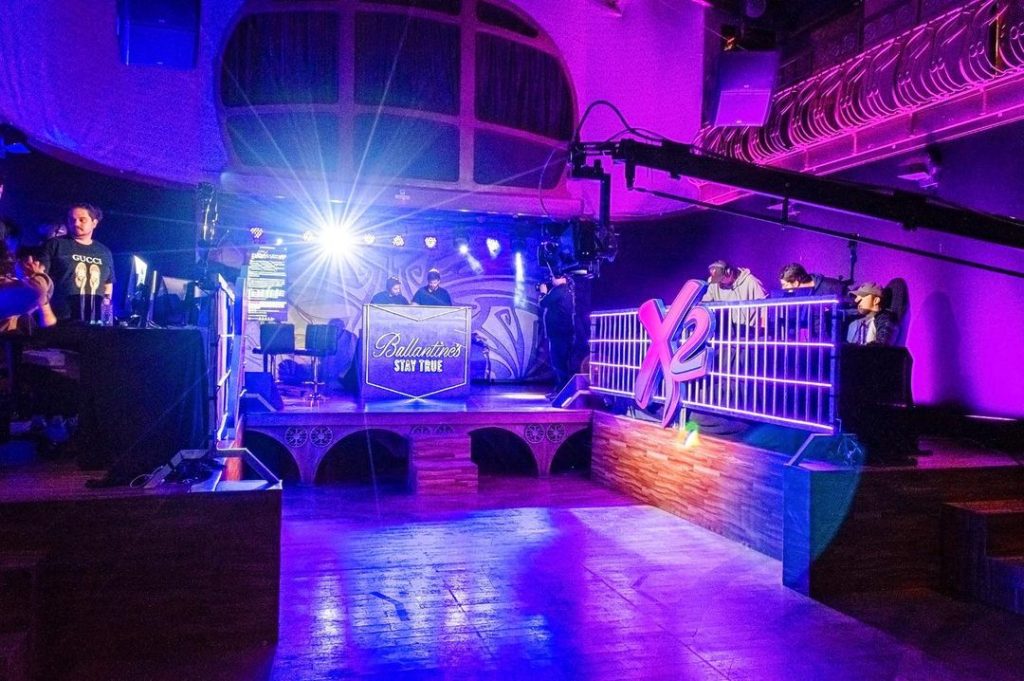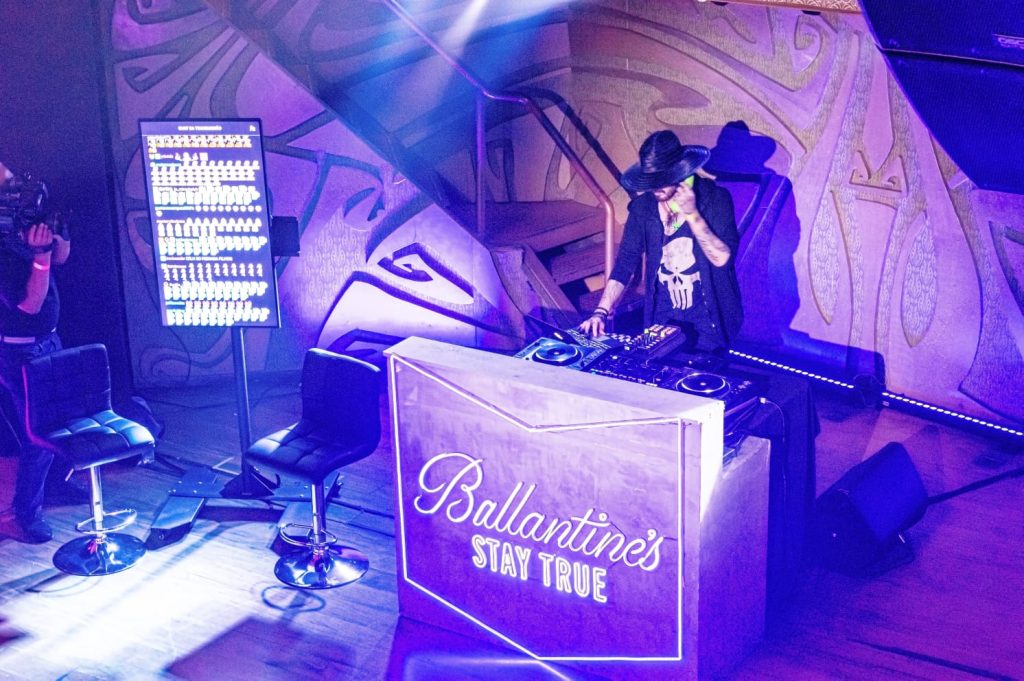
Across the month of September, Esports Insider attended three different esports events in Brazil. All three had something in common: They featured music attractions and had some kind of connection with, or sponsorship from, alcoholic beverage brands.
Once an unusual sight in gaming events, the entrance of brands like Heineken, Ballantine’s and Johnnie Walker point to a new trend in Brazilian esports. The audience is growing, and esports is not child’s play anymore.
Take the Brazilian League of Legends Championship (CBLOL) finals. The whole tournament was already sponsored by Heineken, which promoted its non-alcoholic product Heineken 0.0, but the novelty came after game 2 of the best-of-5 match between finalists LOUD and paiN Gaming.
By surprise, casters announced the first halftime show in CBLOL’s history, with well-known local DJs and MCs, presented by Heineken 0.0. The activation was even named ‘Halftime Show Heineken 0.0’.
Or take PlaYlist X2 by Ballantine’s, an event organised by one of Brazil’s biggest streamers Felipe ‘YoDa’ Noronha through his company SehLoiro, featuring 1v1 League of Legends (LoL) matches between local names and DJ’s, connecting music to the gameplay. As seen in the event’s name, the whisky brand Ballantine’s appeared as the main sponsor.
Throughout its 12 hours live on Twitch, PlaYlist X2 reached nearly 350,000 unique viewers and featured pro-players like Los Grandes’ jungler Felipe ‘Ranger’ Brombilla, one of CBLOL’s main stars.
PlaYlist is particularly focused on making music a part of the game. In a 1v1 LoL match, the player needs seven points to beat his opponent. A simple kill would add one point, but a kill while the DJ ‘dropped the bass’ on the electronic song they were playing would make it worth two points. Each player teamed up with one DJ, raising the need to coordinate the song with the gameplay.
Or take the latest event attended by Esports Insider, BGC, an event organised by LOUD content creator Victor ‘Coringa’ Augusto, featuring funk and trap concerts along with a Free Fire showmatch and a GTA Role Play (RP) competition. It was held in a venue in São Paulo with over 4000 attendees.
Whisky brand Johnnie Walker appeared as one of the sponsors, alongside Itaú-owned Player’s Bank, gambling website Blaze, and Twitch. BGS counted on the support of production company Sundae and marketing agency Druid, both companies belonging to LOUD’s parent company Spacecaps.

BGC had a different proposal and was the nearest thing seen so far to what one might describe as ‘street esports’. Instead of only the coach behind the players giving them directions while in the game, there was a crowd screaming and shaking players by their shoulders after each round was won, while another thrilled crowd was pulsing in front of them.
However, even though Heineken, Ballantine’s and Johnnie Walker were able to feature in those events, their participation did not come without limitations. CBLOL only promoted the non-alcoholic product Heineken 0.0, Ballantine’s was not shown while a League of Legends game was on screen at the PlaYlist, and Johnnie Walker’s activations on BGC were restricted to a specific area of the venue.
According to PlaYlist organiser SehLoiro’s Executive Associate, Adriana Noronha — the person responsible for closing the sponsorship deal — the limitation to Ballantine’s exhibition during PlaYlist is a condition from Riot Games itself to approve the event.
PlaYlist, though, is not only a League of Legends circuit. It had other editions featuring music ‘duels’, all managed by SehLoiro. “The main focus for Ballantine’s is music. Since they wanted to also enter the gaming community, they saw an opportunity with PlaYlist,” Noronha said. The relationship between Ballantine’s and SehLoiro goes even deeper, as Felipe ‘YoDa’ Noronha is a brand ambassador for Ballantine’s in Brazil.
Despite the restrictions, the investment makes sense for the brands, according to Patrícia Cardoso, Marketing Director at Ballantine’s distributor Pernod Ricard Brasil. “The gaming universe is completely in synergy with this purpose because it is a way to elevate the streaming experience for those who are watching, in addition to the potential of drinkability.”
The deals show that, even with limitations, alcoholic drink brands are making efforts to connect with consumers in esports — proof of how desirable they view the esports audience. And the audience is maturing every day. Felipe Noronha, for example, is a gaming creator that caters to older audiences and is, therefore, a valuable asset for a whisky brand to develop exposure in the scene.
The investment of brands related to alcohol in esports is not exclusive to Brazil. AB InBev, the maker of Budweiser and Bud Light, is a sponsor of Riot Games’ Liga Latinoamérica (LLA) and has closed deals with organisations like Fnatic in 2020 and Team Liquid in 2021.
As audiences keep getting older and the market matures, deals like this will likely be viewed less and less as a taboo. After all, the esports audience is inundated daily with betting, gambling and cryptocurrency advertisements, making the case harder to argue for publishers that alcohol sponsors should be off the table.
While debates ensue on alcohol sponsorship restrictions in esports, the alcohol industry is nonetheless busy designing activations that are resonating with fans. The events in Brazil were impressive and well produced, and by aligning themselves with another trend like music have added real value to the experiences of the industry. As drinks and beats grow in Brazilian esports, the party seems to be only starting.
